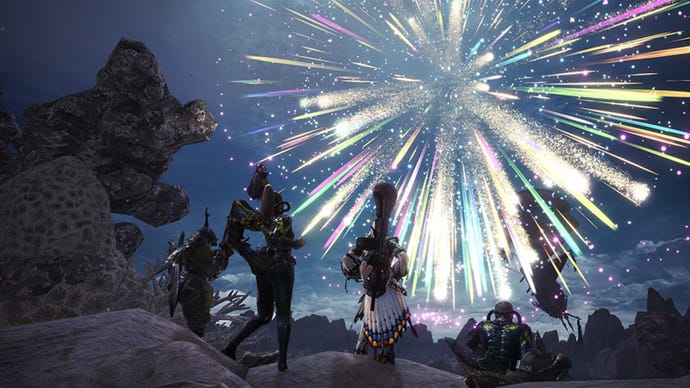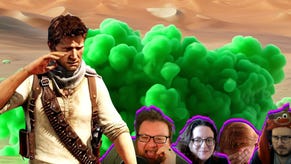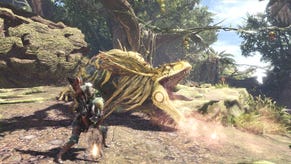Six years later, Monster Hunter World remains as essential as ever (and it deserves its Steam renaissance)
Six years ago, I bought Monster Hunter World on a whim – and to this day, I am so pleased that I did.
The Monster Hunter series has always been something that existed in my periphery. Those are games that share a lot of their mechanics, systems and general vibe with many of my favourite games. But they always felt out of reach; it never made sense to meet them where they are. I care a lot about game presentation, and Monster Hunter games have traditionally been locked to handheld consoles.
I don’t play Nintendo games, so the chance of me getting one of the company’s handhelds is practically zero, and I certainly wasn’t going to get one to play a monster hunting game that runs at 30fps and, well, looks like this. You can call me shallow all you want, but I demand a certain level of graphical fidelity and fluidity in the games I play. Blame growing up with PCs, I suppose.
And so, everytime a Monster Hunter game comes out, I get the same people telling me to bite the bullet and buy a used 3DS and just try out any Monster Hunter for a day. My answer was always no.
Monster Hunter World is six years old today. It was the first Monster Hunter I played, and that’s because Capcom finally decided to bring it to where I was.
It’s easy to forget now, but Monster Hunter World wasn’t actually released on all platforms when it came out. It may be having a major resurgence on Steam today, but the game wouldn’t land on PC for another seven months after the initial PS4/Xbox One launch. It ended up being one of the biggest releases on Steam of that year, broke all kinds of records for Capcom, and Japanese-developed games.
That delay made me reluctant to pick it up on PS4. I knew it would eventually come to PC, and I really didn’t want to have to buy it twice - especially knowing that save files won’t transfer between platforms. Yet again, the monster hunting dream was out of reach. Everyone else at VG247 was playing it, and most had never played a Monster Hunter game prior. Many Slack conversations later, I broke down one weekend and picked up a copy. I distinctly remember coming in on Monday proclaiming, “guys, Monster Hunter is a good game.”
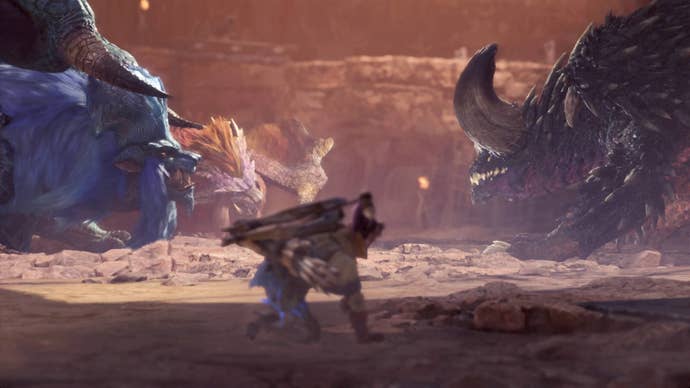
The fist time I fought a monster in Monster Hunter World, much of the character movement, animation priority, and the push-and-pull of the fight all felt familiar because of how much I played Souls games. There’s obviously a massive difference in the depth Souls-likes present vs a standard Monster Hunter game, and really, the volume of depth itself. But the transition from one to the other felt natural, it wasn’t like trying to play a shooter with a controller after years of playing exclusively with mouse and keyboard.
I suspect many others felt the same way the moment they got their hands on Monster Hunter World, and it’s part of what made it such a phenomenon. By the time the series had evolved to the point of where World was - graphically, mechanically, etc. - its conceit was no longer niche. People already had an idea about the sort of game that it was.
This was also a big game with big ambitious released on big-boy consoles. It showed up in a post-Destiny era, where you could make a compelling argument that, actually, it’s a loot game. I vividly remember friends who burned out on Destiny jumping into World and using Gunlances, and Heavy Bowguns and treating it as a shooter.
And really, if you think about it, the major fights in Monster Hunter are effectively mini-raids. It takes a co-ordinated team to kill the monster without running out of the limited number of lives, and doing it quickly enough that it does not flee. All the prep that goes into a hunt like that, from picking the right gear with appropriate resistances, to the right weapons with the most effective elemental damage, and even having the right meal at the cantina for some extra buffs is not unlike the pre-raid prep a Destiny group does.
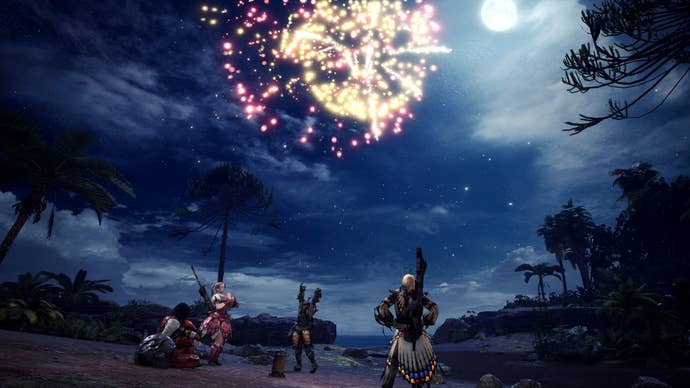
Monster Hunter World’s biggest triumph remains how well it managed to neatly fit into all those little boxes, offering different thrills for different players, and wrapping it all in the same game. There’s really no getting around the fact that it turned a niche handheld game spoken about in hushed tones into something you need to play because everyone else is.
It was absolutely the event of 2018. I have no idea how it managed to do that, and do it so well that it quickly became (and remains) Capcom’s best-selling game in its entire history. Monster Hunter was always precious, it just needed that one breakout game for the world to see that.
